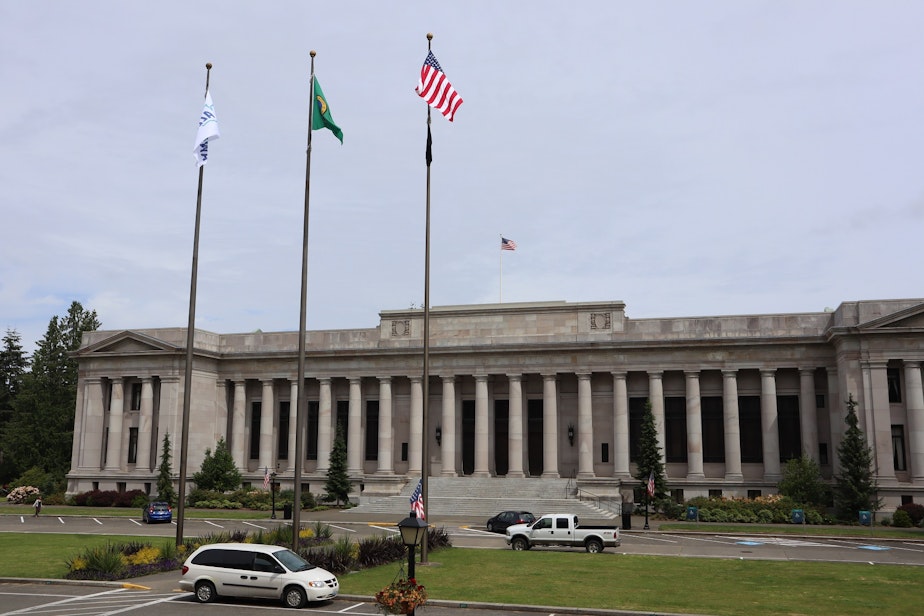Capital gains tax upheld in Washington, state Supreme Court rules

In a 7-2 decision, the Washington State Supreme Court has ruled in favor of the state's capital gains tax.
The arguments around Washington's capital gains tax have focused on one key question: Is a capital gains tax a tax on income? The court's assessment is that capital gains (the sale of assets like stocks and bonds) are not income, and the tax in question is an excise tax.
The court ruled that "because the capital gains tax is an excise tax under Washington law," it rejected the arguments against it. The 7% tax applies to profits from the sale of assets like stocks and bonds that are above $250,000. Supporters, including the state of Washington, promote it as an “excise” tax on transactions.
The Supreme Court's conclusion Friday overturns a previous ruling by the Douglas County Superior Court, which invalidated the capital gains tax under the argument that it is an income tax. According to the court's conclusion:
"The capital gains tax is a valid excise tax under Washington law. Because it is not a property tax, it is not subject to the uniformity and levy requirements of article VII, sections 1 and 2 of the Washington Constitution. In light of this holding, we decline to interpret article VII or to reconsider our decision in Culliton. We further hold the tax is consistent with our state constitution’s privileges and immunities clause and the federal dormant commerce clause. We reverse the superior court order invalidating the capital gains tax and remand for further proceedings consistent with this opinion."
Sponsored
In Washington state, income is considered property, and all property must be uniformly taxed under the law. But considering the capital gains tax an excise tax, that places it under different rules.
Washington's Legislature established its capital gains tax in 2021 when it passed the Senate with a 25-24 vote, and the House with 52-46. The lawsuit challenging the tax was filed almost immediately.
The state estimates that about 7,000 Washington residents will be subject to the tax within the first year. It is projected to produce $2.5 billion in revenue over six years. The revenue is slated to fund education. The state has since been making plans to collect the tax. Democratic leaders proposed budget plans this week which already rely on this revenue.
The court's ruling notes the education funding aspect of the tax.
"All revenues from the capital gains tax are dedicated to public education in Washington. The first $500 million collected from the tax each year will be deposited into the education legacy trust account, which supports K-12 education, expands access to higher education, and provides funding for early learning and child care programs (education legacy trust account). All annual revenue beyond $500 million will be deposited into the common school construction account, which funds the construction of facilities for common schools."
Justice Sheryl Gordon McCloud wrote the court's dissent opinion, which was also signed by Justice Charles W. Johnson. They argue that, "A tax is determined by its incidents, not by its legislative label. The structure of the capital gains tax shows that it is a tax on income resulting from certain transactions — not a tax on a transaction per se. Therefore, the tax is an income tax, not an excise tax."
In the dissent conclusion, McCloud adds, "Deciding whether to retain our regressive tax structure or to replace it with a more equitable one is up to the legislature through legislation and the people through constitutional amendment. The duty of the judiciary when faced with a direct conflict between a statute and the constitution is to uphold the constitution."
Following the announcement of the ruling, the Washington Policy Center, a Conservative think tank, said that the move will open the state up to an income tax. It argues that the IRS, and most other U.S. states, consider such taxes a tax on income.
“Today’s ruling is unreal. The state supreme court agreed with lawmakers that Washington has discovered the first standalone excise tax on capital gains income on the planet. Every other tax jurisdiction in the world, from the IRS, to every other state, to other countries will tell you the same thing – capital gains are income and taxes on them are income taxes," said Jason Mercier, WPC's government reform director, in a statement. "With this ruling, the rules surrounding income taxes in Washington are now unclear. What will be the next type of income tax to be redefined by lawmakers? It is up to the voters now to respond.”


